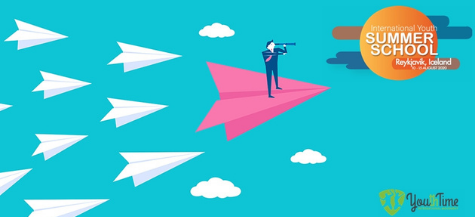Education of the future

Education faces many changes and people have to adapt to these changes by gaining new knowledge, new skills, using technology – those were some of the educators’ remarks during the first day of the Youth International Summer School, held from 10th to 15th of August in the city of Reykjavik.
At the inaugural ceremony Nevena Šaulić, the development manager at the Youth Time International movement (YTIM) Team, which had organized the Summer School with the help of the University of Iceland, The City of Reykjavik, Fab Lab and KPMG, she read a greeting letter from the president of YTIM, Julia Kinash, where she pointed out that technology and innovation have already brought great changes to the job marketplace, leading to a disruption in the skills that we’ve been in need of before.
“Not only is this happening now, but it is happening rapidly, and it is continuing to evolve almost on a daily basis with the introduction of robotic automation, technological innovations and digitalization set to cost millions of people their jobs worldwide”, said Kinash.




